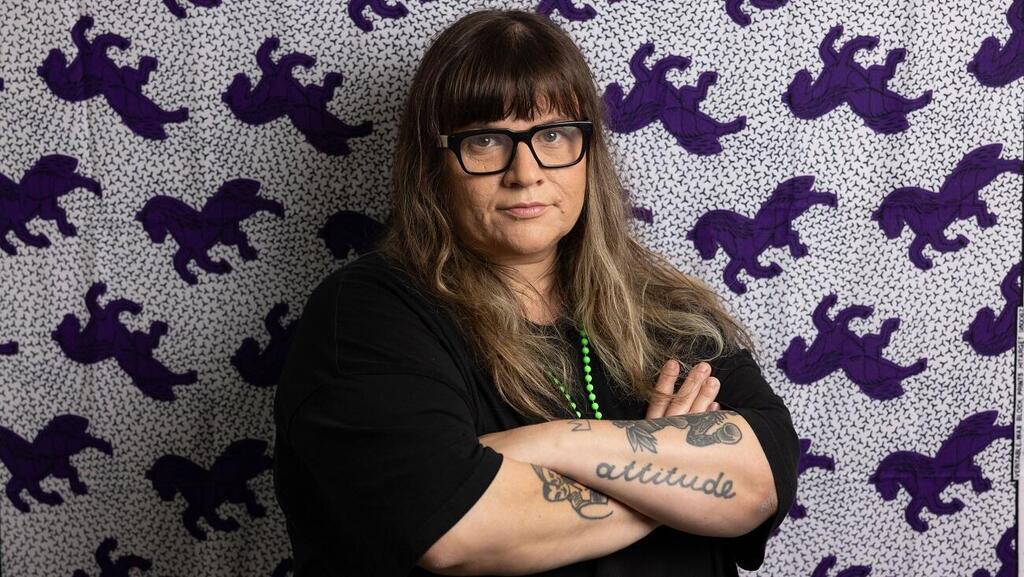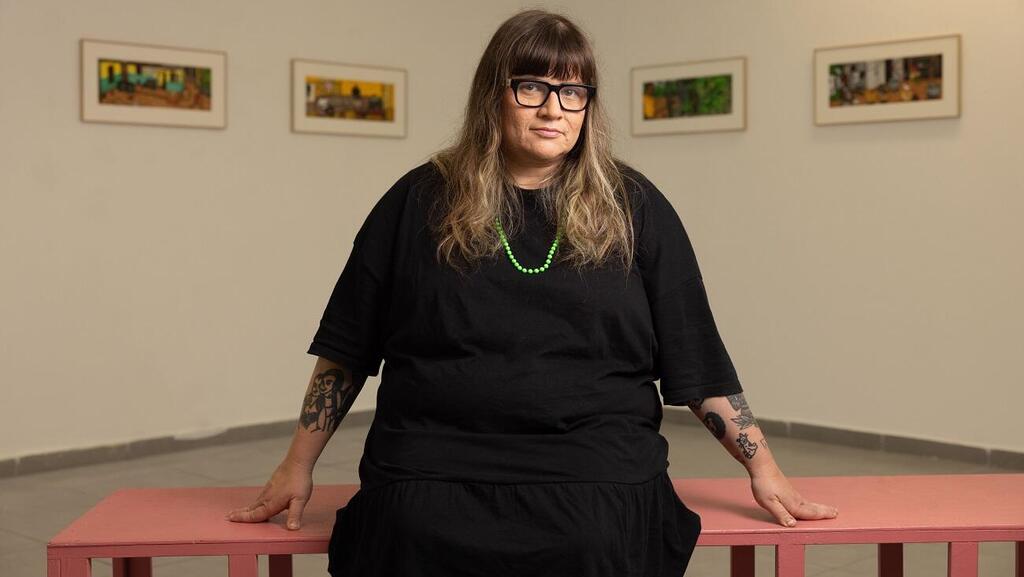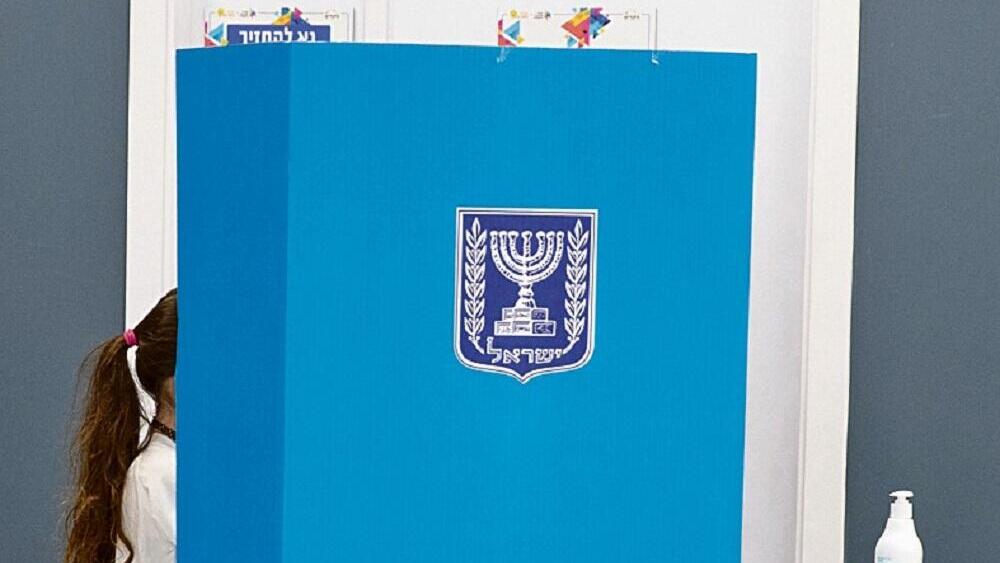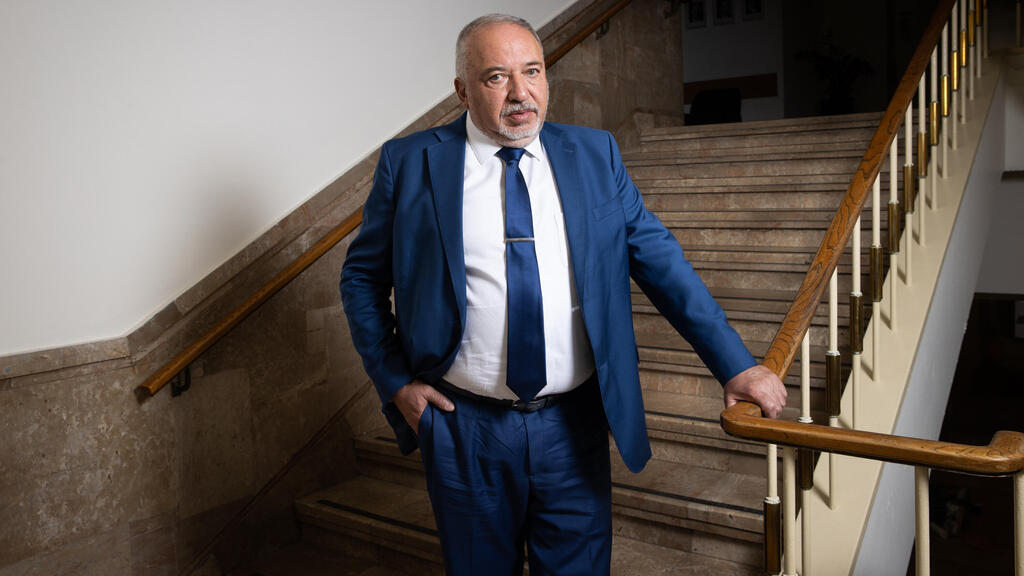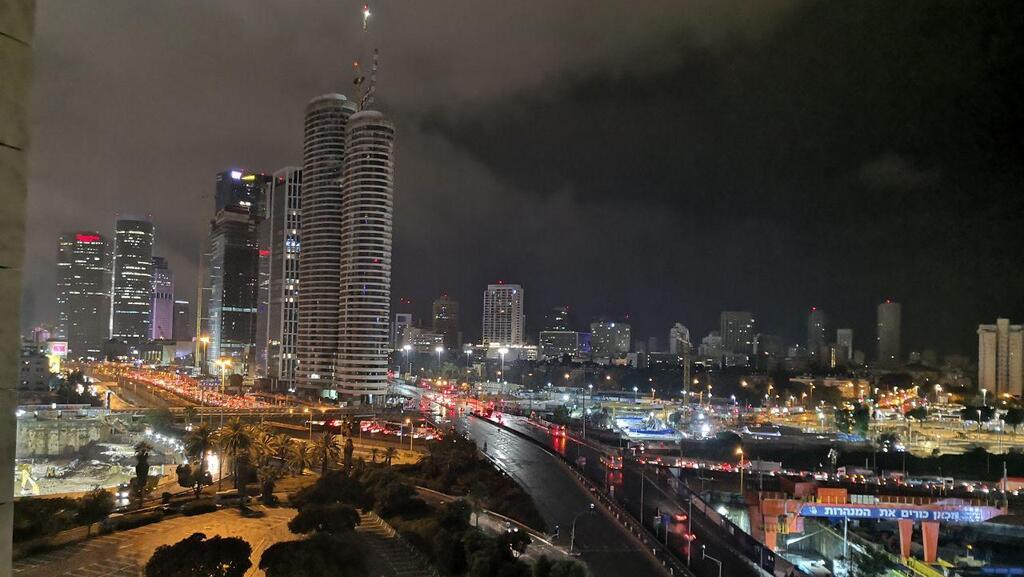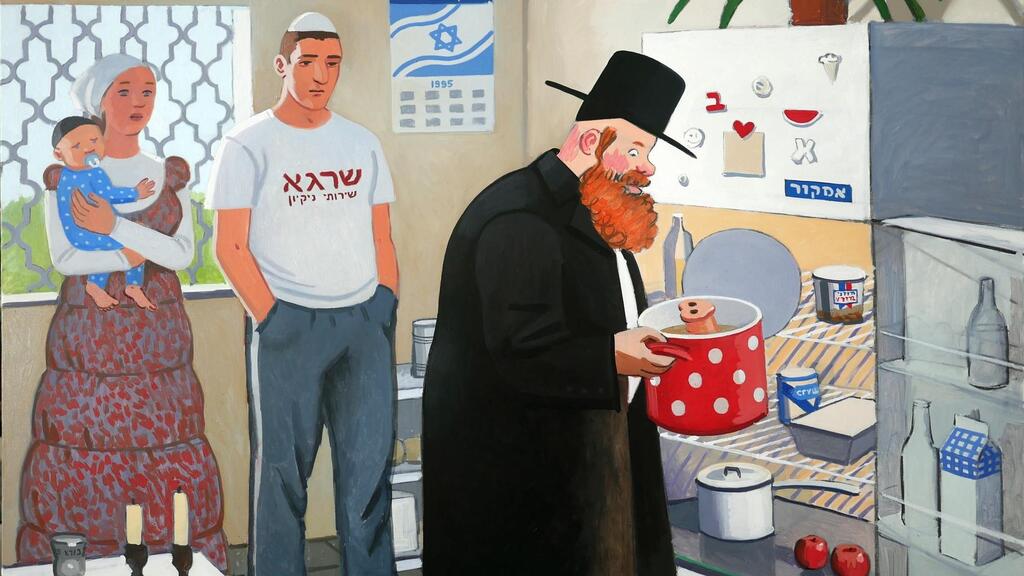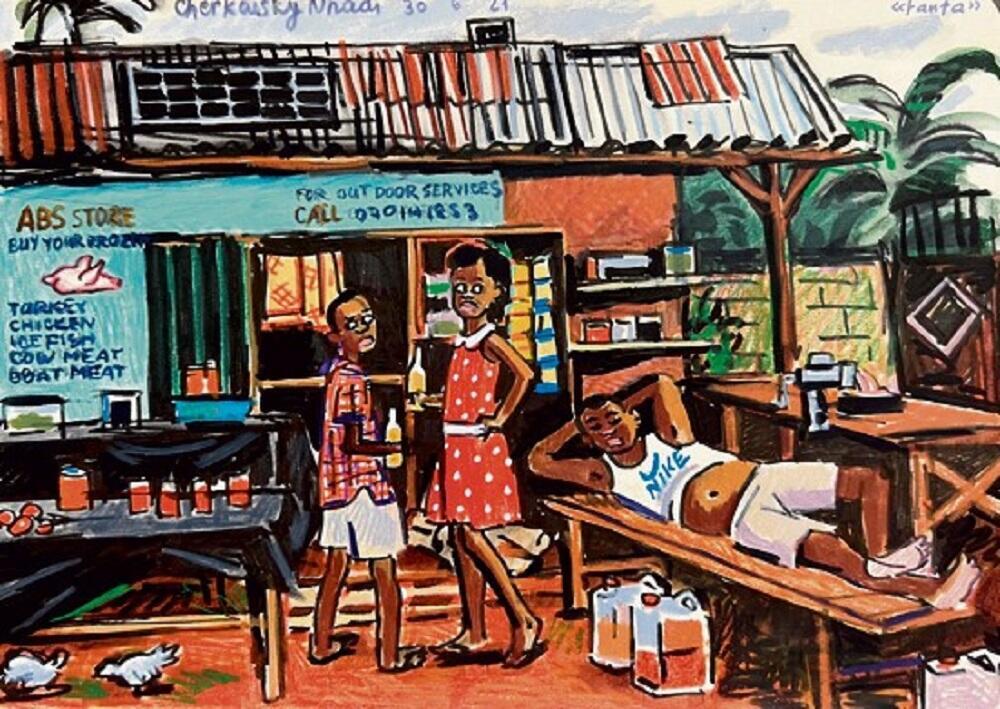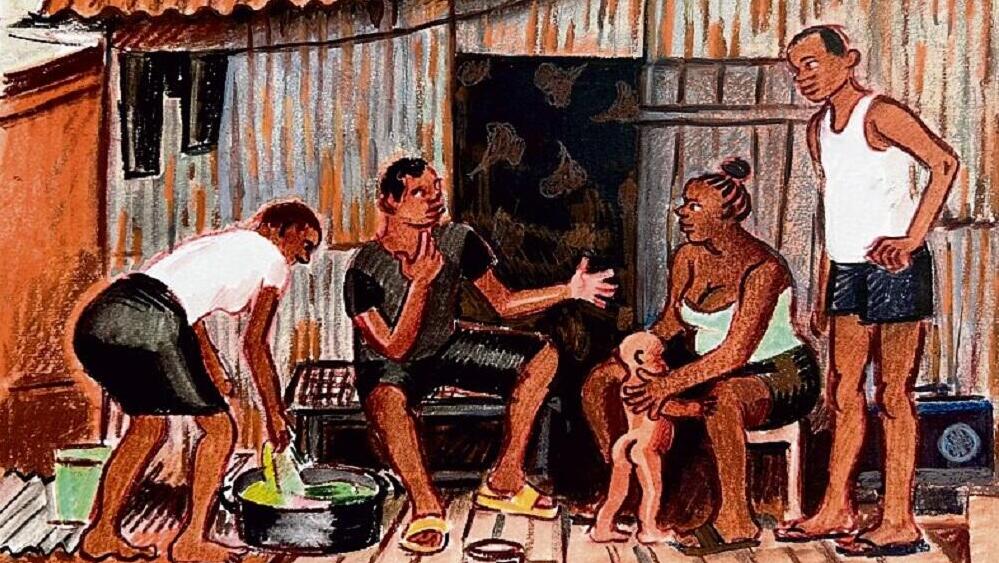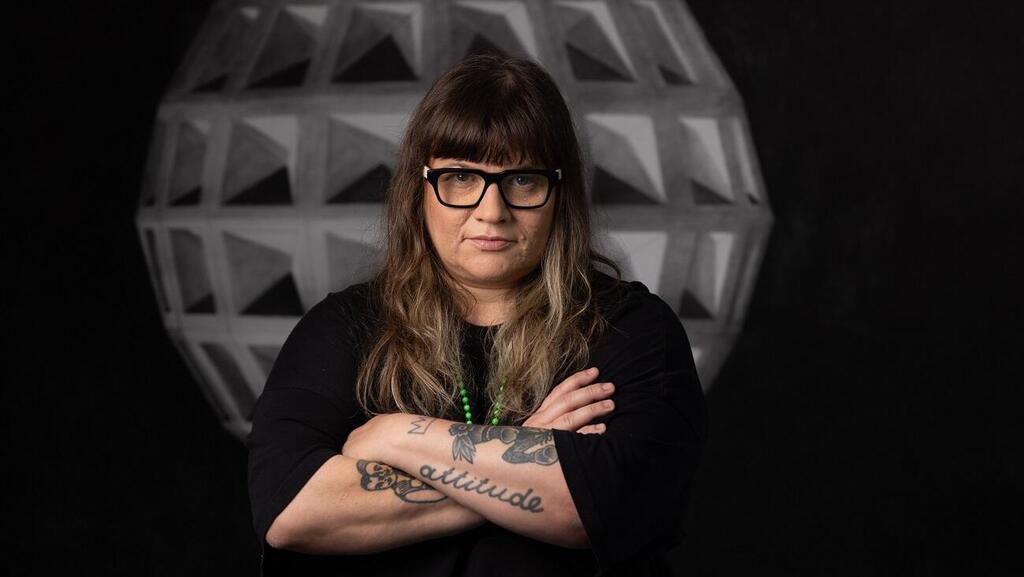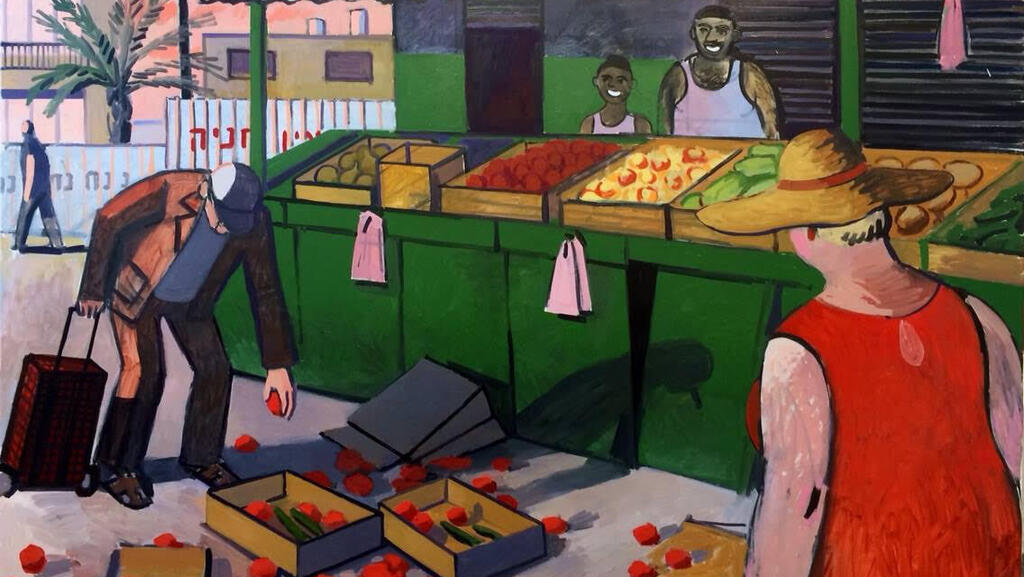Getting your Trinity Audio player ready...
Zoya Cherkassky, a renowned Israeli artist born in Kyiv, immigrated to Israel with her parents when she was 14.
Other stories:
"I became one of you," she says. Today, Cherkassky finds herself deeply entwined in the war in Ukraine. Her sister, who stayed in Ukraine and built her life there, had to flee the country with her daughters.
"It was crazy," Cherkassky says. "When the bombings in Kyiv began, having experience with rocket attacks, I told my sister 'It's nothing, go down two stories in the building and wait'. Then I saw the pictures from there and realized this was nothing like I knew, I told them to go to the Israeli embassy in Kishinev, and from there they moved to Bucharest. I felt I couldn't breathe until they got here."
But things didn’t get any easier. “We were eight people living in my apartment for three months. I was glad they came, we suddenly became a big family when previously it was only me and my cat. But my father died a week after they arrived. He didn’t see his daughter for 20 years, and one of his granddaughters whom he saw when she was a baby, was now 32 years old.”
When asked if her father was excited about her sister’s visit, Cherkassky said: “You can’t understand how my father was feeling.”
Three months after their first visit, Cherkassky’s sister and her family couldn’t continue living in Israel. The high prices, and her sister’s lower income were difficult to make do with. “A 400$ salary is enough to get by with in Ukraine,” Cherkassky says.
Her sister’s family moved to Poland, while she continues to live in Israel, supported by her art. “I’m not a stranger to anything Israeli, and I often guess what any Israeli talking to me will say even before they say anything, and I mostly get it right.”
When asked if she feels like a part of Israeli culture, Cherkassky said: “Sometimes I like to say ‘I’m from Europe’, but I’ve mostly been only in Israel.” Cherkassky says that she’s already used to the extremities and intense news in Israel.
Cherkassky left for Berlin herself in 2005. “I lived there for five years, but found no reason to stay there. I like it here. I keep complaining, saying that Israel is ugly, the people are mean and everything is expensive, but nothing will get me to leave. My mom is old, and I won’t leave her here, and my daughter thinks growing up in Israel is fun.”
Cherkassky says that the November 1 elections will not go well, and that’s she isn’t sure who she’ll vote for. “I usually voted for Hadash, and then voted for the Joint List a few times, but they support Putin, so I won’t vote for them. Maybe I’ll vote for Meretz.”
Cherkassky places herself on the left side of the political spectrum, having voted for Hadash before it merged into the Joint List. However, she later shifted her allegiance to Meretz due to the predominantly-Arab party's support of Russian President Vladimir Putin and his war in Ukraine.
Cerkassky immigrated to Israel in the 1990s. Immigrants from former Soviet Union countries are often viewed as right-leaning and supportive of Avigdor Liberman, who himself made Aliyah from Moldova.
However, she says that “Our family wasn’t like that. Besides, I studied at Thelma Yilin and Beit Berl, where would I come across right-wingers? I don’t really mind not getting to meet them.”
Cherkassky is married to a Nigerian refugee and cannot stand politicians who she considers to be xenophobic, like former interior minister Ayelet Shaked. “I met her at a social event and couldn’t shake her hand. Would it make a difference if I said anything? Would she then realize ‘fuck, I’m racist, I’ll be better now’?”
On the other hand, the Ukraine-born artist still chose to paint Liberman, whose political views on refugees overlap greatly with Shaked's. “He’s a persona representing Russian-speaking immigrants in Israel, my friend talked to his spokeswoman, but we didn’t think he’d agree for me to paint him.
“He sat in my studio for an hour and a half. I think he was nervous because he thought I had ulterior motives for painting him. But I gave him my respect, I was nice and painted him well. He himself later became a darling of the left.”
Cherkassky says that she's scaled back her social activism since the birth of her first daughter in 2015. “I do my best to be with her, I protest online, mainly on Facebook.”
Cherkassky’s blunt paintings showing a plethora of ugly and grotesque depictions of Israel won her regional and worldwide recognition. The 45-year-old artist says she considers her more crude painting as showing “stereotypes as satire, I think it’s a new direction in art.”
The artist says her famous exhibitions, like "The Victims Ball" – which depicted Israelis as victims of the government, or "Collectio Judaica", which presented various Jewish-themed knickknacks in a sarcastic fashion – were done to entertain, rather than to tell a tragic life story.
Cherkassky’s parents, an engineer mother and an architect father, allowed her to have a comfortable childhood. She studies classical painting in Ukraine and continued her studies in Israel at Thelma Yilin. “I felt I was successful since I was a small child, I excelled at everything.”
Cherkassky did not spend much time in the areas of Israel that she decided to depict in her art. “I used to live in Afula. When I paint, I look for what’s typical, the essence, not to tell a life story. My studio is in south Tel Aviv, and you don’t see many beautiful things around here too.”
She says she won’t mind depicting what’s beautiful in Israel. “I’m not against painting rich people, but – other than my lawyer – I don’t know anyone who has a pool in their home. I really like Bnei Brak because of the illegal construction happening there, it creates chaotic architecture.”
Cherkassky’s attitude has made her increasingly famous over the years, and her paintings go for thousands of dollars in auctions. She moved with her Nigerian husband Sani Nnadi and her daughter Vera from Jaffa to Ramat Gan.
Other factors also drive Cherkassky to face discomfort, like Feodor Bezzubov, a lecturer at Bezalel Academy of Arts and Design in Jerusalem, who sued her for NIS 100,000 over a comment she made on his Facebook post.
Bezzubov described in said post how he prevented an Eritrean family from renting an apartment in his neighborhood, to which Cherkassky replied: “Had Hitler been accepted to the Academy of Fine Arts in Vienna, he would’ve become a Feodor Bezzubov.”
The case between the two ended in a settlement, which had Cherkassky pay NIS 30,000 and issue an apology, but she kept voicing her opinion online. “Unlike Bezzubov, the feeling of persecution and xenophobia is not a racist theory, it’s an everyday reality,” she wrote. “It hurts me every time my husband is called racial slurs. It hurts me that the two of us can’t go around south Tel Aviv without someone glaring at us or calling me a ‘whore’.”
She now says her comment was worth it. “What I said about him was a joke. I found it funny. There’s a Russian proverb, ‘for a beautiful word, I won’t have mercy even for my father’ meaning if something sounds good to me, then fuck it.”
'I was born privileged'
Cherkassky’s newest exhibition has nothing to do with Israel. "The Burial of Patricia Nnadi" features paintings she drew while visiting her husband’s place of birth in Biafra, Nigeria.
She says she met him almost by accident. “I wanted to paint a character from the Far East and had a session planned with a model, but she didn’t show up, and I told myself I’d go out and find one – and I found my destiny,” she laughs. “I chose the most handsome man I could find and asked him to model for me. Whenever I paint someone who isn’t a professional model, I talk to them so they won’t get bored. I talked to him, and he was cool, so I hit on him.”
The two later married in Cyprus, and had their daughter Vera. “I became a mother at 38 and lived like crazy before then, so I don’t feel like I’m missing anything now that I’m a parent, I already had everything.”
When asked if she wanted more children, Cherkassky said: “No, because I’m almost 46. I was an only daughter and I have an only daughter. I value my mobility, and you can be mobile with one kid, not so much with three, the parents’ group chats would kill me.”
The couple splits chores between them, Cherkassky’s husband works as a driver for Pazgas, an Israeli gas marketer, while Cherkassky has no driver's license. Cherkassky speaks Hebrew, while her husband doesn't, and is the main provider for their family. “That means I pay the bills and attend parent meetings.”
Cherkassky says her family rarely goes out for fun. “We don’t really like going out. I take Vera to the beach, and Sani has friends from Nigeria.” They don’t eat much in restaurants and cafes. “We eat very different things than the norm. He eats African food which he cooks, and my mom cooks Russian dishes for us. There wasn’t a day before I turned 22 that I didn’t eat a meat patty with a side of potatoes, and that’s what my daughter eats.”
Cherkassky says her daily routine is simple. “I take the kid to school, go to my studio, work until I bleed, and then return home to my family and stuff. I don’t have a social life, I don’t need one.”
Cherkassky talked about what made her decide to open her new exhibition. “We traveled to Nigeria for the first time in 2013 for his mother’s funeral. It’s a three-day festival. I felt like I was on a National Geographic show when I arrived there. We were there for ten days and went to see many of his friends because they wanted to meet me, and I drew constantly. I had something to do for hours without asking him ‘When are we leaving?’”
Her art from Nigeria resulted in paintings with exotic colors depicting mundane moments in the life of an African family and village. Her new paintings allow for a neutral view of life, without the discomfort her paintings about Israel might cause some.
Cherkassky’s new art is a far leap from the place where she began as an artist in Tel Aviv, working in a local clothing store.
"I met Roy Arad and Itamar Handelman, Dana Kelser and Dan Shadur, I thought they were the coolest,” she says. “They were my first clique in Tel Aviv and I felt in the right place at the right time. It’s a feeling that’s worth very much for a 19-year-old girl who just finished school.”
Cherkassky says that she keeps in touch with Arad despite recent accusations of sexual harassment made against him. “Dating minors is taboo for me. But he’s been my friend since I was young and he has only done good things for me. I won’t stop being his friend over something like this.”
And she doesn't care if you think she's privileged. “I was born privileged. The fact God gave me a vocation as soon as I was born is a privilege, and it paved the way I lived my life.”
When asked if she ever considered doing something else, Cherkassky replies "This is what God made me for” despite noting she's an atheist.
She also admits to taking antidepressant medication to help her cope with life. “I'm on Cipramil and it helps me. It doesn’t scare me, it’s not hard for me to take a pill.”
I knew a doctor who said that you should put it in water.
“I want to put LSD in the water. If I was Israel’s dictator I’d have made things orderly here, but it can’t happen in a democracy.”


